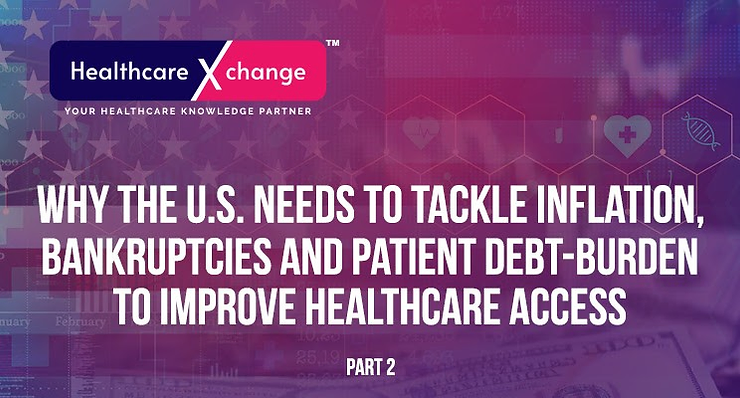
Why the U.S. Needs to Tackle Inflation, Bankruptcies and Patient Debt-Burden to Improve Healthcare Access
- Healthcare and General Service
- October 15, 2024
Highlights
-
Healthcare providers are concerned about inflation, which is compelling patients to delay or cancel medical treatments
-
Amid a challenging business landscape, eighteen major healthcare companies have declared bankruptcy
-
The majority of debtors to U.S. hospitals are insured individuals who face significant out-of-pocket expenses due to deductibles
Healthcare in the United States (U.S.) has evolved over the years and today is an amalgamation of public programmes, private insurance and service providers. The U.S. healthcare system encounters three major challenges impacting the delivery of medical services to different sections of the population.
Inflation
A survey by GlobalData found that U.S. healthcare providers are concerned over inflation and its effect on patients with a rising number forced to delay or cancel treatment outright.
More than 70% of healthcare providers reported that patients increasingly postponed medical treatment in the second half of 2023 due to a steep rise in costs. The trend is expected to continue over the next two years with patients having to prioritise family budgets over individual healthcare expenses.
More than 90% of respondents observed that out-of-pocket expenses were the chief factor in patients to decide against going for treatment in 2023. Out-of-pocket costs for medical services are significantly high in the U.S. with a steeper rise over the last five years as compared to other developed countries in Europe.
A unique aspect of the American healthcare system is its highly integrated approach requiring individuals to buy insurance for healthcare access. While the strategy has boosted the scale and scope of healthcare services, the flip side is that patients may face the prospect of unexpected expenses. For example, most health insurance plans come with deductibles or coinsurance forcing patients to shoulder the initial burden before the insurance cover kicks in.
According to GlobalData, the delay in the search for treatment might result in a backlog that could take years to clear. The impact of monetary tightness and cost-of-living reduction may cause people to forego basic exams and dental treatments. It might potentially provide a bottleneck in healthcare service in the future if the number of patients unexpectedly surges amidst decreasing public health standards. A shortage of patients may drive certain healthcare providers to cease operations, lead to greater expenses as the number of institutions decreases.




